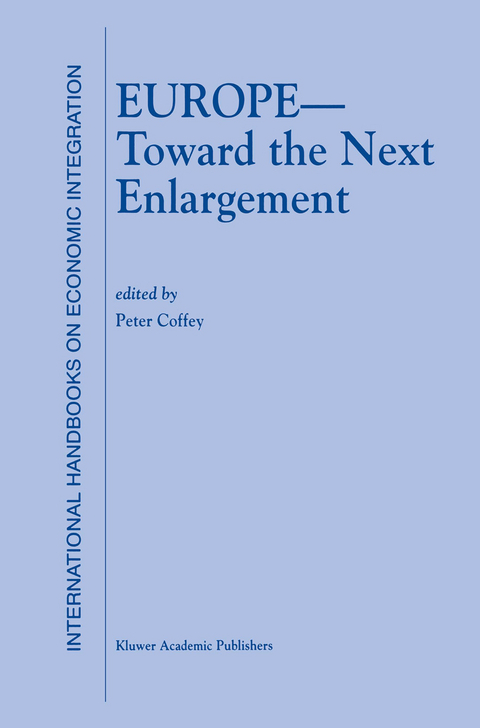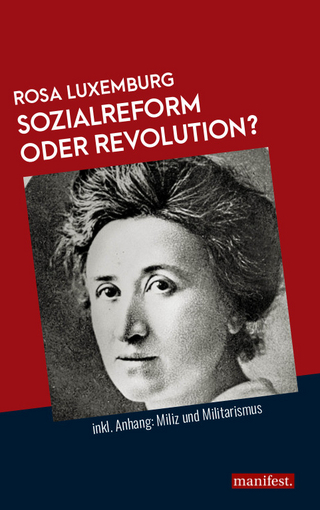
Europe — Toward the Next Enlargement
Springer (Verlag)
978-0-7923-7847-1 (ISBN)
by Peter Coffey THE BACKGROUND Once again, Europe finds itselfata majorcrossroads. In January, 1999, the Euro, the European currency, was launched. This major undertaking does reaffinn the EuropeanUnion'scommon international monetarypersonality whilst further deepening the integration process in Western Europe. The launch of the Euro has gone hand-in-hand with an intensification of the negotiating process between the European Union (EU) and a number of countries of Central and Eastern Europe and Cyprus which are seeking membershipofthe EU. These countriesare divided into two groups, i. e. the so-called "frontrunners" (Cyprus, the Czech Republic, Estonia, Hungary, Poland and Slovenia), and the "others" (Bulgaria, Latvia, Lithuania, Malta and Romania). The accession negotiations with the first group have pro- ceeded rather swiftly. Now, the second group ofcountries wishes to move into the first one. PRINCIPLES AND CRITERIA FOR MEMBERSHIP Basicallyspeaking,countries fulfilling the following criteria may apply for membershipofthe EU: 1. they mustbe (geographically speaking) Europeancountries, XIV Europe - Toward the Next Enlargement 2. theymust have a multi-party parliamentary democracy, 3.
they must have a market-type economy, and, 4. they must respect human rights. These are obviously very basic criteria, thus at the Copenhagen Summitof 1993, they were further refined with an eye to the future enlargement - eastwards - of the EU. In some ways, this listofcriteria obscures someofthe real basic problems which future Member States face in the process of the negotiations for membership. Basically, these countries must accept the three fundamental treaties, i. e. , the Rome, Maastricht and AmsterdamTreaties.
Peter Coffey, a British national was until recently, Head of the Economics section at the Europa Instituut, University of Amsterdam. Presently he is Holder of the recently created U.S. West Chair at the Graduate School at the College of St. Thomas, Minnesota, USA. He has published many works on European and international economic and monetary problems. Professor Coffey, who speaks seven languages, has lectured in most countries of the EC, as well as in many other parts of the world.
1 The Economic and Monetary Union and The Euro.- 2 Enlarging The European Union is Agenda 2000 A Guiding Star for The New Millenium?.- 3 Regional Policy in Europe -Which Way Forward?.- 4 The Impact of The Single Market on The Big European Countries.- 5 Value Creation and A Single Market for Financial Services in Europe.- List of Appendices.
| Erscheint lt. Verlag | 31.5.2000 |
|---|---|
| Reihe/Serie | International Handbooks on Economic Integration ; 3 |
| Zusatzinfo | XXVI, 221 p. |
| Verlagsort | Dordrecht |
| Sprache | englisch |
| Maße | 155 x 235 mm |
| Themenwelt | Sozialwissenschaften ► Politik / Verwaltung ► Politische Theorie |
| Wirtschaft ► Betriebswirtschaft / Management ► Marketing / Vertrieb | |
| Wirtschaft ► Volkswirtschaftslehre ► Finanzwissenschaft | |
| Wirtschaft ► Volkswirtschaftslehre ► Makroökonomie | |
| ISBN-10 | 0-7923-7847-4 / 0792378474 |
| ISBN-13 | 978-0-7923-7847-1 / 9780792378471 |
| Zustand | Neuware |
| Haben Sie eine Frage zum Produkt? |
aus dem Bereich


